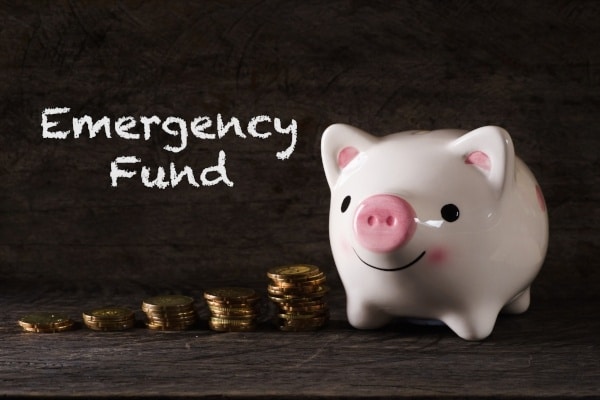Is your business experiencing cash-flow issues or struggling to generate cash? Emergency small business loans can get your business back on track and make paying debts more manageable.
If your business is suffering financially, it doesn’t mean getting out the boards, hammers and nails and turning your premises into the next statistic. There are plenty of options for small business loans specifically available for emergency business finance. Every business encounters situations that are testing the survival of their operations sometimes, but it doesn’t automatically signal the end.
Business owners with a good understanding of their funding options might be surprised by just how many products are available to them.
How do emergency loans work?
Emergency loans are a source of finance for your business that you can use to pay your creditors, and salaries, fulfill credit requirements and allow you to keep trading during your cash-flow problem.
The problem is that when that crisis comes, banks and lenders might be hesitant to offer you a loan or a line of credit. If your business has a healthy trading history then you might be able to secure a standard business loan. But, if you have a limited trading history or have had poor credit in the past, then getting a standard loan from traditional lenders is going to prove difficult.
The factors affecting your cash-flow
Before we explore the types of emergency finance available for small businesses, what might be the reasons for experiencing financial strain?
A cash-flow problem can happen to any type of business; usually when a business doesn’t have enough money to pay its debts or liabilities. The main causes of cash-flow difficulties are:
Low profits – Profit a business makes from trading is the most important source of cash and there is a direct link between low profits (or losses) and access to cash flow. If you are a loss-making business, then you will eventually run out of money.
Over investment/too much stock – Through spending too much on stock or on fixed assets. Having cash tied up in stock that can become old or obsolete (bulk-buying can be cheaper) and having fixed assets that don’t appreciate in value (unless it is your property or land), ties up your cash reserves.
Extending credit – When you allow too much leeway for your clients’ credit accounts will expose you to the risks of slow-paying customers that are already over their recommended credit limits. While these are often ‘business decisions’ they can put a strain on cash flow within the business, affecting more than just profits.
Bad debt – When your customers don’t pay, it becomes a bad debt and bad debts are less likely to be paid either in full or at all.
Seasonal demand – Unpredictable trading cycles can often leave a business exposed to big cash spending before their expected increase in sales. When sales are down and costs rise, your business is vulnerable to financial pressures and additional problems can quickly cripple it.
Overtrading – Your business needs to grow, but if it grows too fast it can exert pressure on cash flow and your short-term finances. Retail companies experience this a lot when they open up new stores and take on multiple refurbishments. The costs are high and occur prior to opening meaning a time delay in generating trade income. The same can be said for businesses – especially in construction – where lead times are short and payment terms are long.
Tax bill – You know when your tax bill is due, but sometimes it comes either too soon or you haven’t expected it to be so big.
Unexpected changes – Whether it is a withdrawal of existing investment or unexpected events like a vehicle or machine breakdown, loss of key staff, industrial accidents or changes to legislation. None of these are usually brought up in finance meetings as potential cash-flow issues.
Using small business loans as emergency loans
There are obvious qualifying criteria to be passed, but sometimes all you need to do is apply for a business loan – you might even get a quick decision from the bank, but more likely you will find it from an alternative lender.
All of the above reasons for having poor cash flow can be remedied with a short-term influx of funding that a small business loan can provide. There are also other options like cash advance, asset-based finance, invoice finance or a peer-to-peer loan.
Short-Term Business Loan – Securing a short-term small business loan can be more helpful than a traditional loan with a lengthy repayment schedule. Getting approved can also be quicker and monies transferred into your account more rapidly. Being short-term, it can help you get through sudden periods of short cash flow without costing you long-term. Highly beneficial when seasonal pressures are put upon your business
Business Cash Advance – This enables you to convert your (credit card) sales into pre-advanced cash. This is a beneficial method of easing cash-flow problems for leisure or retail businesses. Cash is advanced to you and a percentage of your future sales are repaid back to the lender. The debt remains until enough sales are made to repay all the cash advanced to you. The huge benefit of this method of emergency small business funding is that a cash advance facility can often be arranged within a few days – sometimes within 48 hours.
Fast Business Loans – Poor cash flow can happen for a number of reasons, but once it does happen acting quickly is the key. One option is applying for a fast business loan. Applying for one of these can help you get quick working capital to ensure your business gets back on track. They can be arranged as quickly as 24 hours.
Where can you find emergency small business loans?
Requiring a business loan quickly – within a day or two counts as an emergency – is an important recognition to make to the survival of your business, but where can you find small business loans quickly?
The bank – Often the first port of call. Your bank can help but they can take their time with your application, decisions are not made as quickly as your needs.
Alternative lender – Usually your best point of call. The very opposite of the bank, where decisions are made quicker, details are considered more widely and a greater amount of options are available.
Pre-arm yourself by knowing the small business loan requirements
If you’ve identified that your business has the potential to suffer times of cash-flow shortage then it helps to be pre-armed with everything you are likely to need to secure speedy funding – whoever you approach.
Here is a list of everything you might need prior to applying for an emergency small business loan. This can ensure you are ready with the right information before you approach a lender, helping your application get accepted quicker.
It is, after all, an emergency.
About you – What is your business about and what skills and experience do you have within it?
Your investment – What investment have you already put into the business, both personal and financial?
Purpose for funding – What do you need the loan for and how does it fit in with your greater financial plans for the business?
Length – How long do you need the loan for?
Repayment – How will you intend on repaying the loan; through asset sales, cash flow or from trade income?
Security – What asset guarantees do you have – machinery or property – that you can use as security?
Other business interests – To better understand your commitment to the business, what other business interests do you hold and how will this affect the business you are applying for a loan for?
Cash flow – Show your present cash flow and how this will be affected by an injection of cash from a small business loan.
Accounts – Offer evidence – if available – of any previous company performance through your latest and historical files accounts.
Emergency small business loans vs Bank loans
If you are still deciding whether to access a small business loan from the bank, see how the process compares with the flexibility of an alternative lender.
| Alternative Lender | Bank | |
| Loan decision time? | 1 day | 1-3 months |
| Loan term? | Min. 1 month | (As long as possible) usually 12 months |
| Security / Collateral? | Not necessarily | Nearly always |
| Will it fund my industry? | Yes | No guarantee |
| Lots of paperwork? | No | Yes |
What are my options for getting a fast emergency business loan to cover unexpected expenses?
If you need a fast emergency business loan, Funding Guru offers several quick financing options. These include short-term loans, merchant cash advances, and revolving credit facilities, each designed to provide rapid access to funds, often within as little as 48 hours. We match you with the best option based on your needs, trading history, and urgency. Whether it’s to cover a cashflow gap, urgent repairs, or unexpected bills, our streamlined application process ensures minimal paperwork and fast decisions. Fill out our application form today!
How will an emergency business loan work for me?
Bottom-line. You get money quickly.
Approval for your loan can be made within 24 hours and a lender can be found that perfectly matches your business’s needs.
Money can be transferred into your account within 24-48 hours and because of the nature of the loan being short-term, you pay it back anywhere between 1-12 months.
For instance, even if you only have an average credit rating, taking a £20,000 loan, over 3 months, might cost you as little as £1,500 in interest.
Funding Guru can provide a variety of emergency small business finance, including cash advances, business loans, emergency loans and fast business loans. Our expertise can also help you to access peer-to-peer lending as we have many years experience in aligning our clients with the right lenders. We always aim to help lenders to understand the potential in your business.


